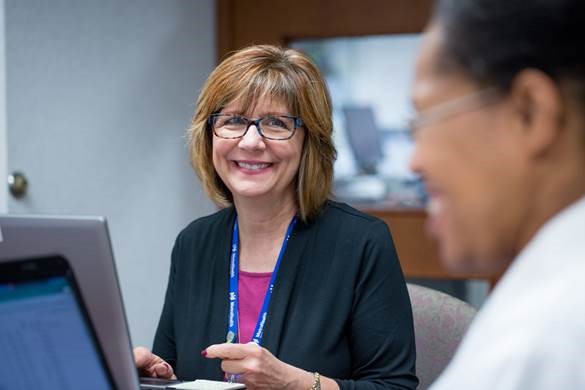Having Difficult Conversations When Tragedy Strikes
When tragedy strikes, there are no words. But plenty of questions.
Why him?
Why his daughter? Only 13.He was such a legend and so young. Only 41.
And why the other children and parents who still have children to raise?
Why?
Where were you when you heard the news? When your phone buzzed, and the headline shared the tragedy of a helicopter crash causing the death of a national treasure.
Kobe Bryant battled the toughest titans on the court. How could a foggy Sunday morning be his biggest, most brutal opponent?
There’s no escaping the shock and sadness that comes with a tragedy. Especially one that receives media attention that will likely last for weeks. But there are ways we can help our children and each other cope.
According to Terry Stancin, PhD, director of child and adolescent psychiatry and psychology, parents can expect children to ask questions and express sadness and or fear.
“They may seek reassurance that their parents or siblings are not in danger and will not die,” she says. “This is a good time to emphasize that the accident was very unusual and reassure them that they are safe.”
It’s also a good time to express your feelings.
“Times like this remind us to hug our loved ones, especially our children,” she says.
Dr. Bob Smith, director of MetroHealth's medical staff assistance program, concurs.
“Life is a precious gift,” says Dr. Smith. “We were told that growing up as children. And yet we fill our days with unimportant things. Don’t let the unimportant things in life get in the way of the really important things, like telling your loved ones that you love and cherish them.”
Certainly, one of the hardest things about being a parent is having the tough conversations about topics like death and dying.
“We talk about our houses, our jobs, and our vacations, but the one thing we all face, an important thing – we don’t talk about,” says Dr. Smith. “We don’t even know which words to use. Died? Passed away?”
Dr. Smith encourages parents to talk with their children at the level they will understand and to be genuine and sincere.
“We don’t have to say a lot, we just have to be there for them and ask if they have any questions,” he says.
Betsy Hamm, a MetroHealth chaplain, warns that tragedies like this may reawaken emotions from our own experiences that caused great emotional distress.
“That old grief we know can bubble up and come to the surface,” she says. “It happens all the time and we might not even be aware of what triggers it. Things like this may cause us to revisit experiences that maybe aren’t resolved or may never be resolved. The important thing is to be open to conversations and acknowledging your feelings.”
“We don’t do grief well in this culture,” admits Sandra King, also a MetroHealth chaplain. “We say, oh, you’re sad, have a cookie.” Sandra suggests admitting to children that you don’t have all the answers and help them explore what their own hearts are telling them.
“We can support children in finding their own answers. Let’s admit, ‘That’s a good question, what do you think?’ You don’t have to have the perfect answer to this difficult question.”
Sandra references a favorite passage from the children’s book, Going on a Bear Hunt. “You can’t go over it. You can’t go under it. You just have to go through it.” We each experience grief differently, and there’s help through it, if needed.
Founded in 1837, MetroHealth is leading the way to a healthier you and a healthier community through service, teaching, discovery, and teamwork. Cuyahoga County’s public, safety-net hospital system, MetroHealth meets people where they are, providing care through five hospitals, four emergency departments and more than 20 health centers. Each day, our nearly 9,000 employees focus on providing our community with equitable healthcare — through patient-focused research, access to care, and support services — that seeks to eradicate health disparities rooted in systematic barriers. For more information, visit metrohealth.org.


